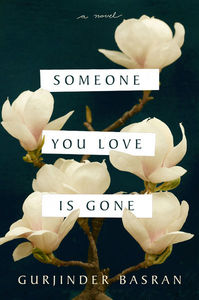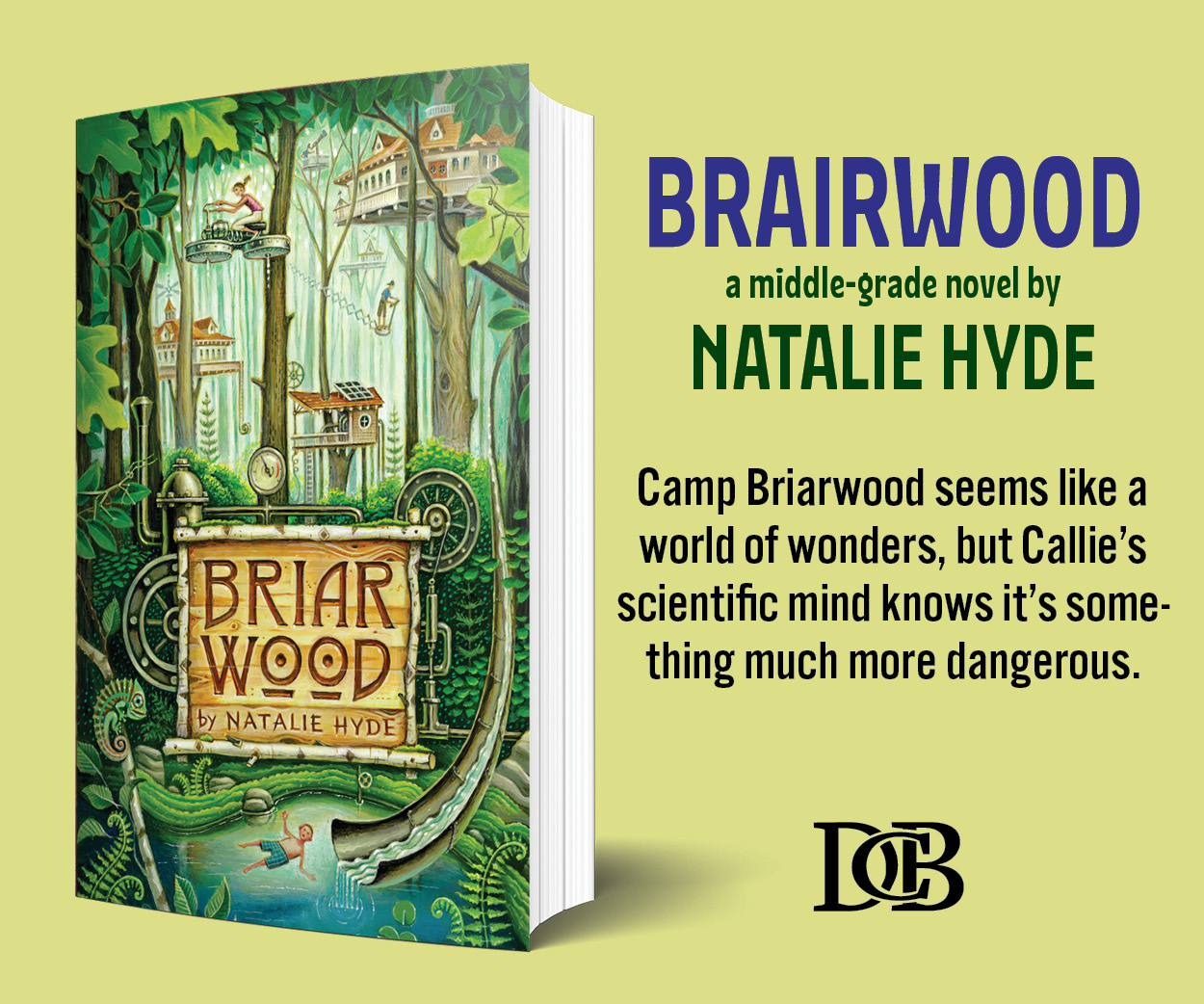“I think suffering shows us who we truly are.” - Q&A with Gurjinder Basran
By Stacey May Fowles
A Q&A with Gurjinder Basran, author of Someone You Love is Gone
In 2010, debut novelist Gurjinder Basran won the Search for the Great BC Novel Contest, and the following year took home the Ethel Wilson Fiction Award. The buzz and accolades were for her first book Everything Was Goodbye—an effort the media gushingly described as “fascinating,” “exceptional,” “elegant” and “poetic.”
This fall Basran returns with Someone You Love Is Gone, a thoughtful and at times difficult look at grief, betrayal, romantic love, and family connection. Open Book Toronto corresponded with Basran about the process of creating her sophomore release, the challenges of tackling great loss, and how in the end, everyone really just wants to be loved.
Stacey May Fowles:
Tell us what readers can expect from your second novel, Someone You Love Is Gone.
Gurjinder Basran:
On the surface, Someone You Love Is Gone is an exploration of grief and how it impacts our relationships with our loved ones and ourselves. On another level, it’s a book about the nature of time, memory, and ancestral inheritance and how all of these elements shape our perceptions of life, death, and everything unknown.
SMF:
Writers often discuss the differences in approach, process, and pressures between a debut and second novel. How did and does this book differ for you than Everything Was Good-bye?
GB:
Everything Was Good-bye was the first thing I had ever written and in a way, was my education in craft. It took over 5 years and countless revisions to complete and yet, through it all I never lost my sense of wonder. When I started writing this novel, I was nervous about how it would be received because I knew that it was quite a departure from the first novel. Shortly after I started writing it, my mother became ill and due to various reasons I put the manuscript away and I didn’t return to it for three years. When I finally returned to it, I finished a first draft in less than a year. By then I was so relieved to be writing again that I wasn’t worried about whether anyone would like it or not! When I wrote Everything Was Good-bye, I was writing with a great deal of momentum and with this book I didn’t have that same positive momentum. With this book, I felt an urgency, and was compelled to complete it even when I tried to resist.
SMF:
The novel is heavily concerned with various incarnations of heartbreak, mourning, grief, and loss. Why was it important to you to tackle these difficult, though very human subjects head on? Was it hard to submerge yourself so heavily in these themes during the writing process?
Your CanLit News
Subscribe to Open Book’s newsletter to get local book events, literary content, writing tips, and more in your inbox
GB:
I think suffering shows us who we truly are. Any type of loss and mourning opens that fragile space in us where who we are comes forth. In those times we experience a range of emotions from rage to blame, to denial and hopelessness. During loss we’re vulnerable and open to change, and often these times serve as both a pause and a pivot moment. If we’re willing, it gives us time to assess our life and then step forward into it with more clarity and purpose. Writing through these themes was exhausting and I’d often leave the keyboard feeling proud of the work but emotionally drained. At times, even I was repulsed and frustrated by my characters and surprised by the things they did.
SMF:
In the book you write very candidly about what it means to lose a child, and the trauma of stillbirth. Do you think this is an unexamined reality, or a conversation not commonly had in literature and culture?
GB:
In so many ways this book is asking “what is the meaning of a life?” and what value does that life have after it ceases to exist, so it seemed natural to also explore child loss. I think when a woman finds out she’s pregnant she begins to make plans, she begins to dream about the possibility of the child and regardless of when the loss occurs, the loss of that possibility is real and traumatic. It’s as if some possible incarnation of her life is suddenly closed off to her even though her body holds the reminders. In the western world we have such an obsession with productivity, efficiency and the idea of “moving on, and getting over it” that we create an environment where people don’t feel they can grieve openly.
SMF:
Someone You Love Is Gone also focuses a great deal on loyalties and betrayals, and the complex dynamics within families, over generations. What draws you to writing about the connections between family members and the expectations in ourselves those connections breed?
GB:
Most people want to know they’re loved, valued and that they belong. From early on, family relationships and how we connect are the most direct expression of this desire. Even as our social circles widen, when something in our family remains unresolved, the issue manifests in other ways and remains a root conflict until it’s addressed. I’m always curious about how people handle these core conflicts and how that shapes their beliefs.
SMF:
Simran is not necessarily a "likable" character—she's self-deprecating, flawed and makes mistakes, and yet the reader feels tied to her, trusting her to lead them throughout the novel. How important was that honest rendering for you?
GB:
She was a challenging character to write. Her grief strips her of artifice and because she is struggling so deeply she can’t keep up the appearances of a happy life. She mirrors all the qualities we try and hide from each other and ourselves—indecision, neediness, hopelessness, a lack of gratitude, envy, dissatisfaction, blame. In Simran, all of this is on display, and even she loathes it. Ultimately she finds a way through, as we all do.
SMF:
Further, Diwa is a fascinating character who seems almost seems to transcend a great deal of the human conflicts that are happening in the book. Can you talk a little bit about him, and what drew you to creating him?
GB:
Although Diwa is a quiet character, he’s the character that holds the narrative together and is one of the only characters that appears (in some way) in every time shift of the novel. He was inspired by the writings of Rumi, and many other mystics, and philosophers. In those writings, there’s always an element of the spirit in the every day. I wanted Diwa to be a representation of that spirit–although he cannot be fully known, he is always there.
SMF:
What projects are next for you, both literary and life-wise?
GB:
I’m working on a new novel, and since I don’t write outlines, it’s hard to say what it’s about. Writing is a process of discovery for me; I never know what I’ve written until it’s done. Beyond writing, I’m enjoying my DIY design and redecorating addiction, I’m always on the hunt for some new project.
Someone You Love Is Gone (Viking Canada) is available across Canada August 29th.
The views expressed by Open Book columnists are those held by the authors and do not necessarily reflect the views of Open Book.
Stacey May Fowles is an award-winning journalist, novelist, and essayist whose bylines include The Globe and Mail, The National Post, BuzzFeed, Elle, Toronto Life, The Walrus, Vice, Hazlitt, Quill and Quire, and others. She is the author of the bestselling non-fiction collection Baseball Life Advice (McClelland and Stewart), and the co-editor of the recent anthology Whatever Gets You Through (Greystone).




